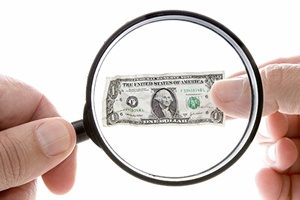 While it is still early days, with only 9 percent of S&P 500 companies reporting as of the end of last week, the initial earnings reports seem to show that things are still not good. According to FactSet, quarterly earnings are down, so far, by 44 percent. If this number holds, it would be the second-worst quarterly drop since the end of 2008 during the financial crisis. Scary news—but not unexpected.
While it is still early days, with only 9 percent of S&P 500 companies reporting as of the end of last week, the initial earnings reports seem to show that things are still not good. According to FactSet, quarterly earnings are down, so far, by 44 percent. If this number holds, it would be the second-worst quarterly drop since the end of 2008 during the financial crisis. Scary news—but not unexpected.
In fact, earnings were and are expected to be down significantly. Lots of bad news is already priced in. The real question, looking forward, is whether conditions are worse than expected or better. So far, earnings, like the economy itself, are doing better than expected. Note this does not mean they are necessarily doing well but just better than what analysts expected.
This view is consistent with the backward-looking economic data, which shows millions of people moving back to work and retail sales pretty much back to pre-pandemic levels. It is also consistent with normal quarterly behavior, where companies guide analysts to lower their expectations, which they can then beat.
Is it different this time?
So far, 73 percent of companies have beaten their expected earnings. This number is better than the usual 72 percent over the past five years, although not by much. Similarly, the companies that did beat expectations did so by 6.3 percent, which is above the 4.7 percent average over the past five years but, again, not by that much. In other words, what is surprising about the earnings so far is not where they are, which is down significantly as expected. Instead, it’s how the behavior against expectations is very similar to what we usually see. It is different this time, in the absolute level of earnings. But it isn’t different this time in how analysts are treating the data. This is good news.
If the rest of the quarterly earnings reports play out similarly, it means that despite everything, including the very unusual lack of guidance from the companies themselves, the analysts still have a reasonable grasp (at least as good as usual) on what earnings will be. With uncertainty likely to decrease over coming quarters, the analyst earnings estimates are likely to be even more reliable. That means we, as investors, may have more visibility into the future than we might have thought.
What should we expect ahead?
Looking forward, analysts are predicting a 24 percent decline in year-on-year earnings in the third quarter, a 12 percent decline in the fourth quarter, and a return to growth in the first quarter of 2021. If the estimates for this quarter are pretty good, despite all the uncertainty, then those estimates are quite possibly reasonably reliable as well. And if we can count on continued improvement and a return to growth in 2021, that is good news.
In fact, it might be better than that. Typically, between the number of companies beating estimates and the size of the beats, earnings come in between 3 percent and 4 percent above expectations—as we are seeing so far this quarter. If that same scenario happens over the next three quarters, we might move back to growth sooner than expected and by more than expected.
That outcome is also consistent with the recovery so far, which has been much faster than expected. While there was some slowdown in the high-frequency data as case counts rose, that decline has moderated and even come back a bit. So, the recovery is likely to keep going, which could also drive better-than-expected earnings.
What is the earnings season telling us?
The potential for better-than-expected earnings is also consistent with valuations for the market as a whole. Based on expectations, valuations are quite high. But if actual results beat those expectations, which seems quite possible, then valuations would be more reasonable. In that case, the market is not as expensive as it seems, but it is expecting faster future growth. In other words, what the earnings season is telling us so far is that the recovery is on track and may be on a more solid foundation than we thought.
Positive signs in early days
As I said at the start, we’re still in early days, and the results could change. We also face continued viral risks, political risks, and everything else. But what we can take from the earnings season so far, despite the drop on a year-on-year basis, is surprisingly positive. It will be even more so if companies keep doing better than expected.


 Print
Print

